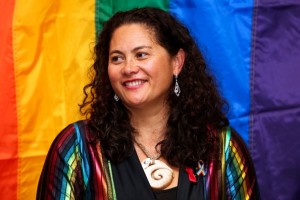
The Marriage Equality Bill, proposed by Labor MP Louisa Wall, passed the vote by 77 votes to 44 meaning same-sex marriage will now be legal in New Zealand (Photo Credit: Hagen Hopkins/Getty Images).
By Lexie Matheson, Academic and Program Leader for Amnesty International New Zealand at AUT University
On Tuesday April 17, New Zealand became the 13th country to legalize same-sex marriage as the Marriage Amendment Bill passed its third reading 77-44. The law will take effect in August 2013 and will allow same-sex and transgender couples to marry.
Marriage means an awful lot to me.
It hasn’t always, but when I met my spouse, I knew that this was the path I hoped we’d walk together. Things worked out, and despite a 30-year age difference and the odd gender peculiarity, we married in Te Whare Karakia o Hato Pateriki raua o Hato Hohepa – otherwise known as St Patrick’s Catholic Cathedral – in central Auckland.
We were able to marry because my spouse Cushla is a natal female and I was born biologically a male, even though I identify as female and had, by that time, already begun my gender transition.
We were legally able to marry because my birth certificate said I was male even though I’m not and the church treated us as they would any other heterosexual couple, despite knowing from day one of my intention to transition. This was in 2001 and Marriage Equality was no more than a twinkle in the eye of New Zealand society – and possibly not even that.

